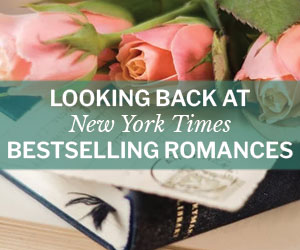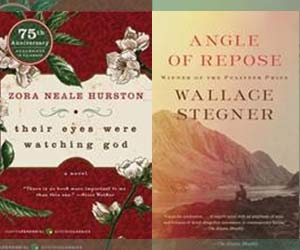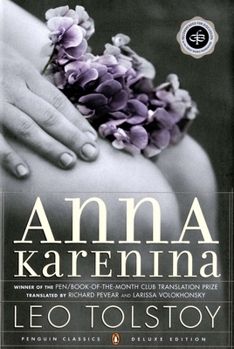Anna Karenina: (Penguin Classics Deluxe Edition)
Select Format
Select Condition 
Book Overview
Tolstoy's epic novel of love, destiny and self-destruction, in a gorgeous new clothbound edition from Penguin Classics. Anna Karenina seems to have everything - beauty, wealth, popularity and an... This description may be from another edition of this product.
Customer Reviews
Not Hardcover
Not a hardcover like I ordered.
One of my favorites
Misleading
This is one of my favorite classics
psychological master piece
Enthralling
Greatest Novel Ever Written
Excellent on so many levels
Quite simply, The Novel
Thrilling and packed with tragedy!
Anna Karenina Mentions in Our Blog

Hello Boils and Ghouls! The Thrift Keeper here (named for my devilish ability to find the Best Bargains among Blood-Curdling titles!), and now that the most horrifying of all possible holidays is over (Valentine's Day—YUCK!), I'd like to help re-darken your horizons by talking about Romance Gone Wrong!

Who are the bestselling romance authors of all time? We decided to find out. Here's a retrospective of authors who topped the bestsellers lists from the 1930s onward.

Are you ready for a reading challenge this summer? We’ve rounded up a list of exceptional classics for you to consider. You could call them the original beach books!

On this date in 1595, Shakespeare’s Romeo and Juliet was first performed (not officially published until 1597). Although the renowned tragedy was by no means the first literary story of doomed love, it coined the phrase "star-cross'd lovers" and continues to inspire heartbreaking sagas even today.

Big books have fabulous stories, but are intimidating to start. Here are some tips to help you read big books.






